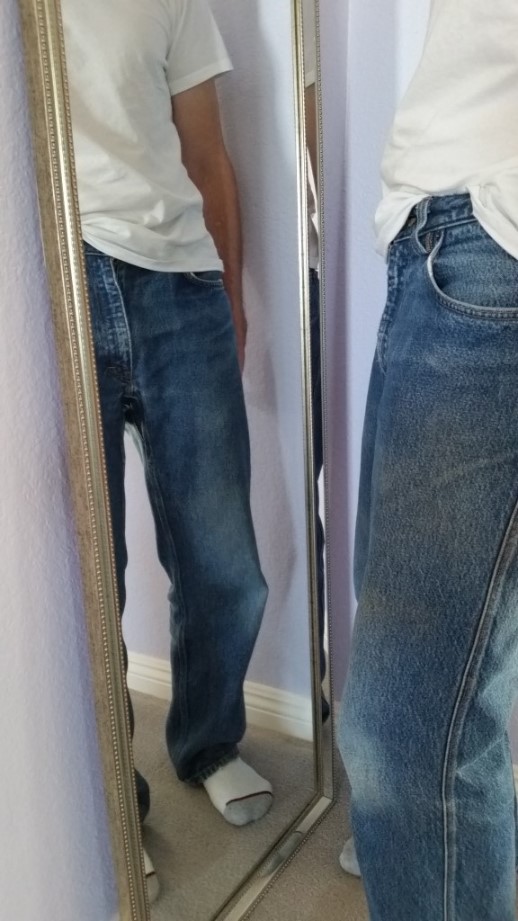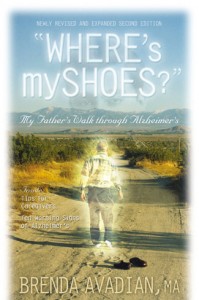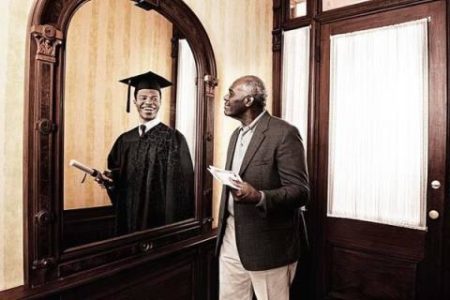Mirror Mirror On the Wall – Who Is That Mimicking Me?
One Sunday, while relaxing and catching up with the week’s mail, my husband, David, and I watched as my father got up quietly and walked toward his bedroom. He had been living with us after being diagnosed with dementia. We returned our attention to our mail when we heard someone talking. We each stopped what we were doing, looked up at each other, and realized there was no one else home besides the three of us. Or was there?
Who could my father be talking to?
We got up to investigate.
Quietly making our way down the hall, we hear my father talking. We approach his door and look in. Since my father was profoundly deaf and in this instance, focused, we observed without being seen.
Facing the full-length mirrored closet doors, with his hands clasped behind his back, speaking clearly in Armenian, “Ah-sor maseen, eench guh khor-rees?” Ahsonts guh-nank ohk-nyl?” (“What do you think about this? Can we help these people?”) He waited for a reply. None came, so he repeated the questions. Again, he waited.
David and I looked at each other and giggled softly, wondering if we were witnessing the real deal.
My father grew irritated. The person in the mirror was not responding. Trying to stand straighter, despite his curved spine, he asked, “Aboosh es? Mee-yan hon guh-gehnas!” (“Are you dumb? You’re just standing there!”)

We could barely contain ourselves when we realized he was serious!
Do we laugh or do we cry?
My father was attacking his own reflection! Having never seen something like this before, we hoped it was a single occurrence. It wasn’t. For the next several weeks it continued.
Finally, my father asked us to join him in his bedroom. “I want you to meet someone. Do you know this person?” he asked, pointing to the mirror. “Look at him, he exclaimed, “all he does is mimic me. He doesn’t answer my questions. He just stands there, looking stupid.”
Bittersweet Humor
At this point, we’re laughing and crying, inside. It’s one of those strange moments in life that overworked exhausted caregivers understand. Yet, our compassion fills us with concern for how awful this must be for him.
It’s important for caregivers to place themselves in the shoes of their loved ones. Imagine living in such a state of confusion. The disease can be terrifying when you’re truly unable to recognize your own reflection in a full-length mirror.
Help Is On the Way
 We wanted to help my father. Back then, we hooked up a video camera to the TV, to help him see himself in real time. Since the mirror was so upsetting, we didn’t want to use it. Having him place his hand on his lap and then watch the same on the TV, we figured we could help him recognize himself. Each time we tried, he didn’t. He insisted we call the station manager. “There’s a guy on TV that looks just like me,” he said. At least, he recognized that he looked like that guy on TV.
We wanted to help my father. Back then, we hooked up a video camera to the TV, to help him see himself in real time. Since the mirror was so upsetting, we didn’t want to use it. Having him place his hand on his lap and then watch the same on the TV, we figured we could help him recognize himself. Each time we tried, he didn’t. He insisted we call the station manager. “There’s a guy on TV that looks just like me,” he said. At least, he recognized that he looked like that guy on TV.
While I was away on travel, David with my father’s help, installed the mirrored closet doors inside out. They didn’t look as nice that way, but that non-responsive stupid guy was gone. My father could preserve a bit of his dignity without being mimicked and ignored in his own room.
Story adapted from “Where’s my shoes?” My Father’s Walk through Alzheimer’s (unavailable).

For those who are unfamiliar how a person with Alzheimer’s may be confused by their own older image, click to view these Reflections – 50 years ago.








